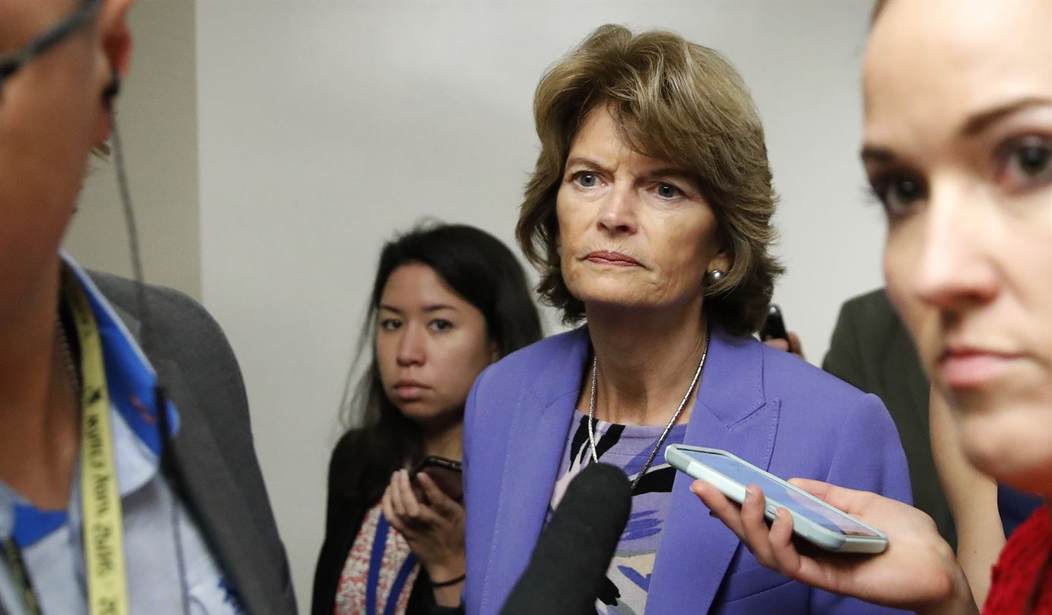The Associated Press ran one of their 2022 primary deep-dives today, comparing the history and potential fortunes of two prominent Republican officials. They’re breaking down the differences between Alaskan Senator Lisa Murkowski and Congresswoman (for now) Liz Cheney. Both of them face the voters in primaries tomorrow. They are both high-profile critics of former President Donald Trump and both supported his impeachment. Those factors have already proven to be the kiss of political death for other never-Trumpers and the AP readily admits that it looks like the same fate probably awaits Liz Cheney on Tuesday. (Unless she somehow actually managed to trick a massive number of Democrats to switch parties at the last moment, something we’ve seen no sign of.) But Murkowski’s fortunes look very different. She seems poised to move on to the general election and polling suggests she will at least be strongly competitive if she does. But why?
They hail from their states’ most prominent Republican families. They have been among the GOP’s sharpest critics of former President Donald Trump. And after the Jan. 6 insurrection, they supported his impeachment.
But for all their similarities, the political fortunes of U.S. Sen. Lisa Murkowski of Alaska and U.S. Rep. Liz Cheney of Wyoming are poised to diverge on Tuesday when they’re each on the ballot in closely watched primary elections.
Cheney faces daunting prospects in her effort to fend off the Trump-backed Harriet Hageman, increasingly looking at a life beyond Capitol Hill that could include a possible presidential campaign. Murkowski, however, is expected to advance from her primary and is already planning to compete in the November general election.
The AP correctly points out that the nature of the political winds that blow through Wyoming and Alaska are notably different and that is likely playing a role here. Cheney carried on a relentless war against Donald Trump while representing a state where he saw nearly his largest margin of victory in both 2016 and 2020. It’s Trump country, plain and simple. Even if she convinced every single registered Democrat in Wyoming to switch to the GOP this month, I’m still not sure if there would be enough votes to carry her over the finish line.
Meanwhile, Alaska is reliably conservative for the most part, but they tend to be considerably more quirky. They also have a much larger share of independent voters who do unpredictable things at times. For proof of this, look no further than Murkowski’s own 2010 reelection effort. After losing the GOP primary and being rejected as a candidate by the Libertarian Party, she went on to become only the second person in history to win a Senate seat via a write-in campaign. (Strom Thurmond was the other one.)
But Murkowski now has one other distinct advantage that Cheney does not enjoy. Cheney is running in an actual Republican primary election. If she doesn’t win the nomination her chances sink significantly. But as we’ve discussed here before, Murkowski no longer has to compete in a GOP primary. Alaska changed it’s voting system recently so she is in an open primary where the top four finishers move on to the general election regardless of party.
One Alaska pollster named Ivan Moore told the AP that this makes all the difference in the world. He said that if Murkowski had been forced to run in a Republican primary she would have had “a zero percent — I mean zero percent — chance of winning.” But now she is almost certainly assured of one of the top four slots. And since the general election will be held under the execrable rules of ranked-choice voting, she doesn’t even need to win in the first round if nobody reaches 50%. She can poach the votes of anyone who didn’t want her but marked her down as the “least bad alternative” to their first choice and potentially keep her seat.
It’s far from assured, but this is still a viable scenario. And if it plays out, two Republican women who went to war with Donald Trump may wind up on very different career paths.








Join the conversation as a VIP Member